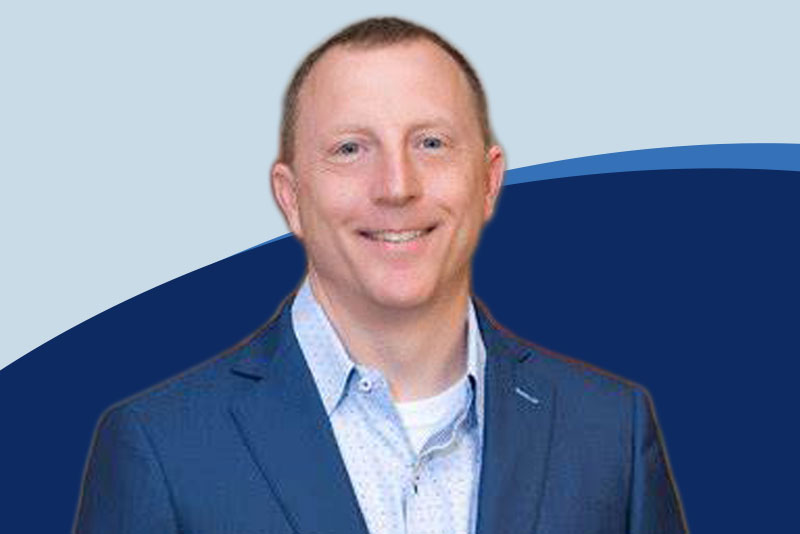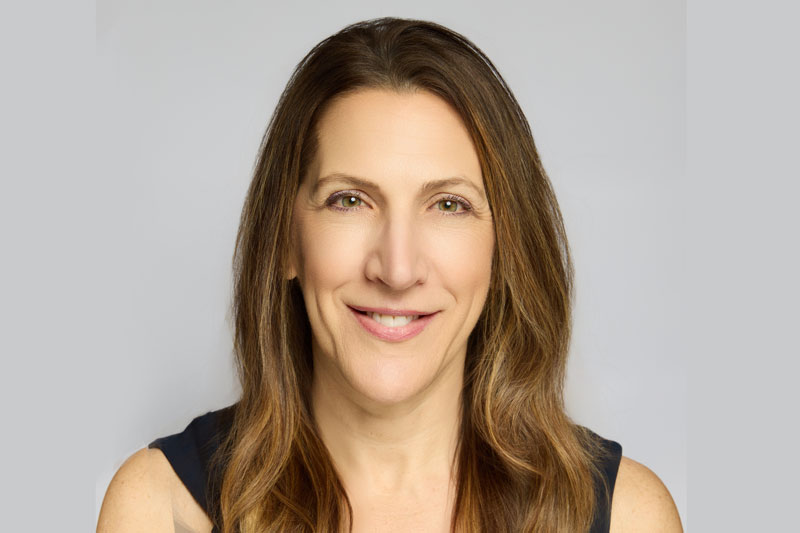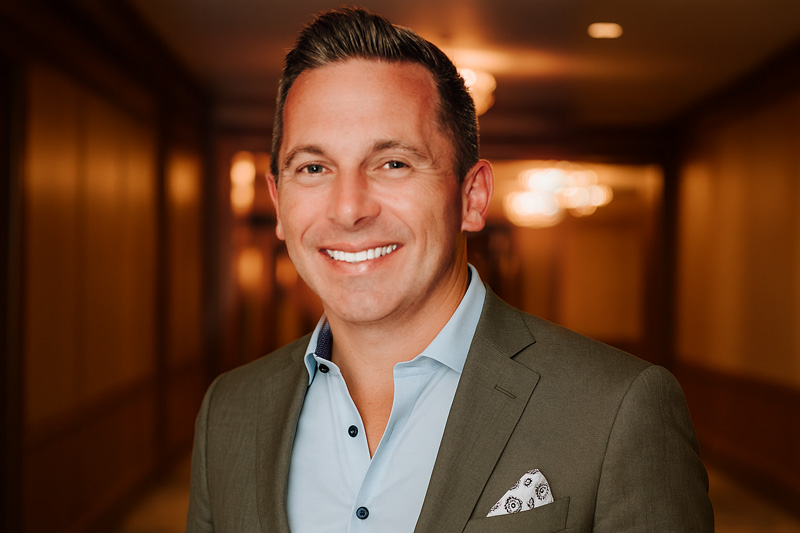Episode #351: Legal Strategy & Practice Growth: What Dentists Must Know to Thrive Without PPOs, with Brian Colao
Listen Now
Podcast: Play in new window | Download
Subscribe: RSS
Step number 3 to successfully resign from PPO plans is all about getting your entire team’s support to achieve the goal of becoming less insurance dependent. Their support is vital for you to make your goal a reality. Your patients don’t discriminate on whom they ask questions. If your team members do not support your decision, they will convey the same message to your patients and make your patients unsure about coming to your dental practice. Gary will discuss specific steps to earn your team members’ support.
Naren: This is the less insurance dependence podcast show with my good friend Gary takas and myself Naren Arulraja.
Gary: We appreciate your listenership, your time, and most of all we appreciate your intention to reduce insurance dependence in your practice. Our goal is to provide information that will help you successfully reduce insurance dependence and convert your practice into a thriving and profitable dental practice that provides you with personal professional and financial satisfaction.
Gary: Welcome to another episode of the less insurance dependence podcast. I’m Gary takas your podcast co-host, very excited to bring you a continuation episode, if you’re a regular listener of the less insurance dependence podcast, we announced a few weeks ago that we were going to do a series within the podcast and the series is all about the six steps to successfully resign from PPO plans and today’s episode is a continuation of that series. Step number three to successfully resign from PPO plans. Before I get into today’s episode though I want to take a minute and let you know about a wonderful CE opportunity that’s coming up at the time this is being published. It’s coming up in about two weeks and that is our thriving dentist MBA workshop live stream workshop. Eight hours of CE we’re doing this one on January 29th and 30th a Friday and a Saturday half of the course will be presented on Friday and the other half will continue on Saturday. We’ve done that format before and that format has been very popular with past attendees. During the thriving dentist MBA workshop, I go through the ten elements of a thriving practice, we spend significant time on each and every one of those elements, by the way, is how to successfully reduce insurance dependence. It is a true workshop; we do limit attendance because we do run it as a workshop. We have 11 different exercises during the day and those exercises are designed to help you implement the information that’s being presented when. I present this in a live format which we did pre COVID we go through different exercises during the day and we went to the live stream format we wanted to continue that concept of doing exercises because it allows the attendees to take the information and actually apply it to their practice. In any case, I want to invite you- to encourage you to attend. You can find the information, we’ll put a link in the show notes you can find the show notes at lessinsurancedependence.com, simply click the link there it’s lessinsurancedependents.com backslash MBA and if you click that, it will show you whether there are any seats available. If there are no seats available we’ll have future dates announced for you we do as I mentioned limit the attendance and they usually sell out however if there are seats available I’d encourage you to jump on it especially now at the beginning of the year it’s very affordable CE you’ll get eight hours of CE credits perhaps the most affordable CE you can participate in any case, come join us! well hey, I want to kind of frame this episode step number three to successfully resign from PPO plans, and what step number three is, is, to get your entire team behind your goal of successfully resigning from PPO plans very, very, very, important. Let me talk about the first two steps if you’re new to less insurance dependence podcast you can go back and download those step number one was know your data and you need to know the data in your practice you need to know how many plans you’re on you need to know how many patients you have in each plan what the discount rate is with the difference between your usual fee and your contracted fee and you also need to know as I mentioned how many patients are involved and you need to know what the timeline is per your contract so that you can resign from those PPO plans. Every one of them will have some kind of a timeline meaning once you give notice that you’re resigning you have to stay in-network for a certain period of time. Generally, that’s 30 days but it could be a different time period it could be 30, 60, 90. I’ve even seen as long as 180 days very unusual but I have seen that so step number one is knowing your data. Step number two is master digital marketing and mastering digital marketing is so important because if you are participating with PPO plans the majority of your patients will come from those PPO plans and by the way you’re paying a massive premium to do that I want you to think of those adjustments the difference between your usual fee and your contracted fee as a marketing expense and we’re talking about depending on the size of your practice hundreds of thousands of dollars a year because you’re paying the insurance company to provide you, patients. You have to master marketing for two reasons as soon as you go out of network the dental insurance PPO plan will literally turn the spigot off of any new patients coming from their pan of course they will because you’re no longer a network. So, you’ve got to replace those if the majority of your patients today come from PPO plans. It’s critical that you replace it with some other source of marketing the other reason why marketing is so important is we have to replace any patients we might lose when you go out of network. So that’s step number two and today we’re getting into step number three which is how to get your entire team behind your goal of successfully reducing PPO plans what do you think about that topic?
Naren: I love it Gary I think I like today’s emphasis the step three which is all about the team and I think this might be one of the most important I think all steps are important I think after building a marketing funnel so that you are not depending on the people you plan to drive your patients, I think this is really important because you can’t do this you can’t successfully resign from the PPO plans if your team is not totally behind you. So I’m really excited about this I know you do a lot of work with your clients and I know you do the training you even do you know personalized meetings with each client you even meet the team members and I know some of the events you’ve had people have tears in the eyes
Gary: what’s so exciting about that and Naren, is that you know in our client base my our clients typically tell me Gary I’ve got a great team they just want to know what to do and dentists our dentist clients will say and Gary I don’t mind admitting this, I don’t know what to tell them because I haven’t done it but I’ve got this great team they are behind me a hundred percent and now they just need no to know what to do and that’s some of the work that we do in the coaching because of course, we’ve been through this in my own office but now we’ve been through with practices all over the country and we can provide that training to them, so then they have the perspective and the attitude and now we’ve got the skills that go with it and I agree with you Naren that I almost feel like each one of the six steps is most important. In fact, I can take the position like a debate coach in college where I could actually take the position that each step is most important but if you had to pin me down and say Gary give me one of the six which one is most important. I would agree with you I would say this one is because you can’t do this alone and you might think you can Doctor you might think you’re going to put on the Superman cape or the super superwoman cape and say I can do this but patients don’t discriminate who they ask their questions to, think about that and you know what is the conduit Naren where new patients come through virtually every practice
Naren: They’ll call the phone
Gary: And that isn’t going to be the doctor on the phone
Naren: Yeah
Gary: So, imagine that you’ve got a team member on the business side of your practice that isn’t trained isn’t behind it now we’ve got our marketing work we followed step number two we’ve got our marketing working but we’ve got a team member that has never worked in a practice that didn’t take insurance in the back of her mind she said this is a crazy idea, how do you think those inbound calls are going to be handled if that’s the reality
Naren: Yeah, and the patient is going to say hey do you take XYZ insurance they’re going to say nope click the patient say thank you I’ll call you back and never calls back
Gary: They never call back yeah
Naren: You and I have seen this early day of your clients this is one of the things we notice like the team is they all have great intentions but it’s like doesn’t matter how great your intentions are but if they don’t know what to do and how to do it, it’s very hard to produce results
Gary: Yeah, so let’s talk about some very specific strategies that we can use
Naren: Gary, before I forget do you mind if I have our team put a link to the coaching strategy meeting, I know this is New year this is the 14th of January when people are listening to this and I’m sure like many, many, many, people are saying what I don’t want to write that 200 000 checks or 300 000 check to the insurance company year after year so would you have some time maybe to talk to a few people and see if you’re coaching and your work might be beneficial to them.
Gary: yeah Naren, I’d be thrilled to do that for our listeners here on the podcast absolutely so we’ll put a link in the in the show notes it’s to schedule a coaching strategy session with me and the purpose of that meeting will be for Doctor you and I to talk about whether our coaching services are a good fit for you we can walk through that and determine whether it’s a good fit or not I’d love to do that you know I see it as a way to give back to our listeners do so much to support our work here at the less insurance dependence podcast that I would be more than happy to do that, you bet. All right let’s talk about some of these strategies I’m going to talk about four specific strategies. Number one doctors, start this discussion with your team by framing the business challenge of staying in-network you know your team members aren’t business owners they may not know what the consequences are of you being in-network I remember when Paul and I did this with our team in 2007 13 years ago brand-new team to us that we had just bought that practice in May of 07 and we started going out-of-network by September of 07. And I had done some cost accounting Naren, and I’m pretty good at cost accounting and I’d done some cost accounting and I realized that our most offensive plan was met life. Now that may or may not be true for you yours may be delta it may be blue cross blue shield it may be united Concordia but for us, it was the lowest fee be scheduled was met life and I figured out that every time we did a crown on a met life patient it cost Paul and me 138 dollars, actually out of our pocket it cost us to take care of that patient so we had a team meeting and I started out with kind of a humorous way to explain this and I said hey guys you know that front desk drawer we have that has all the sticky notes and the pens in it. We should take out that drawer we should dump it out dump out the pens and the sticky notes and replace it with 100 bills, put just a bunch of crisp 100 bills inside that drawer and every time a met life patient comes to us because by the way guys it costs Doctor Nielsen and I, 138 dollars every time we provide a crown to a met life patient and I think we should replace that drawer with 100 bills and every time a met life patient comes in, we should simply hand that patient a hundred dollar bill and tell them to go somewhere else
Naren: I loved the way you framed it
Gary: Yeah, that would actually um you know make it’d be less expensive for us to hand out hundred dollar bills and our lead assistant Heidi who she was there for 12 years before us she is still there today our 13 years of stewardship without practice he’s been there 25 years Heidi looked at me and said Gary let me make sure I understand it costs you and Doctor Nielsen 138 dollars to do a crown for met life patients. So that’s exactly what she said: "that’s not right that’s not fair that’s ridiculous what can I do I need we need to change that what can I do?" I could not have created a better response than that. She just wanted to know what can I do to change that and so I think we need to kind of frame the business challenge and not in a heavy way but just let them know like for example a simple way to show them is to know what the amount that you’re giving up every time you see a met life patient or you know PPO patient
Naren: We have a tool the PPO write-off calculator you answer like a couple of questions in a couple of minutes we’ll add a link to it we will tell you whether you’re giving up a hundred thousand or two hundred thousand and many of those numbers we have looked at it’s even six hundred thousand dollars a year, it’s crazy
Gary: Most dentists don’t know what that number is yeah most dads don’t know what that is because they enter their contracted fees in and they don’t know what they are but find that out there’s a link in the show notes just click that follow the steps it’s accurate to plus or minus two percent you’ll have a great resource there, but another way you can frame that is the average discount today is 42 to 44 percent meaning that let’s say it’s 44 percent you don’t get if you have a fee that’s a thousand dollars you don’t get a thousand dollars you get five hundred and sixty dollars so one of the ways you can frame that is, say hey how would it feel, as a team member if on Monday or on Friday you’re making twenty dollars an hour but on Monday you’re making forty percent less you’re making twelve dollars an hour anyone willing to sign up for that, and everyone will say no doctor no we’re not on board with that because that’s actually what’s happening to you. I use 40 because it makes the math easy. So instead of 20 they make 12 dollars an hour and anyone wants to sign up you can do it playfully you know because we’re not doing that but you know and of course their reaction is going to be no. Now number two I want you to recognize emotionally doctor that your team members likely have little or zero experience reducing insurance dependence and what happens to human nature when we’re doing something new that we don’t have experience with we tend to resist it, right, isn’t that the human response
Naren: Absolutely Gary
Gary: So you should expect some team members with question marks in their expressions it’s like I’ve only worked in dental offices where they take insurance, what you know expect that so recognize your team members likely have zero experience or very little experience. Now on occasion you can actually see the opposite of that, Naren, I was doing a zoom team meeting for one of our clients this week just happened earlier this week and we’re early in the process and I said hey guys I’m you know we had the whole team on zoom and I said how do you feel about this a project we have to reduce insurance dependence in your practice and the office manager raised her hand a little like shot her hand right up and she said Gary I think this is fantastic, I previously worked in a fee for service practice and I first hand experienced that. She had moved she said this was in another state and we had to relocate here because my husband had a job transfer, but I’ve seen the benefits of that and it was interesting to see the team rally around her because now one of them believe that it can be done. So sometimes you get that wonderful by-product of team support but don’t be surprised if your first reaction is a bit of pushback, because they’re not familiar with it. Have emotional intelligence guide them through it and remember that we’re going to remain patient-friendly I think the key to getting your team on board because they might think you’re just going to wash your hands of insurance well that’s not it at all. We’re still going to file claims for our patients we’re still going to submit all the documentation we’re still going to follow up on all those kinds. we’re going to help our patients get every dollar of benefit that they have. The only thing we’re not going to do is be contracted with that insurance company. Once the team on oh wait a minute this isn’t really any different for our patients, we’re going to do all this stuff for them like we always have right and imagine if a team member is an insurance coordinator, might what might be going through her mind Naren
Naren: what’s going to happen to my job
Gary: is my job going away no, no, no, no, no, not at all and so another way to succeed. Let me go to the third one may be the most important of the strategies. Doctors when you’re speaking to your team members speak in terms of my favorite acronym W-I-I-F-M which stands for what’s in it for me and the theme that I’m talking about is them. Talk about what’s in it for them and you can talk about it in financial terms, meaning that hey guys as our practice you, you, you, know that we have a generous approach here at the practice as the practice is more successful. We’re able to reward our team members more. You can talk about it in terms of the workload because you’re not the only one that feels like a hamster on a treadmill, your team members feel like a hamster on a treadmill. Hey, would you like to get off the treadmill? You can speak in terms of technology maybe you have a wish list your team members have a wish list. Maybe your hygienist would like to have start to use loops magnification. Well, hey is the practices more profitable the price they’re able to invest in technology but speak in terms of what’s in it for them, what’s in it for them what’s everyone’s favorite topic? themselves… So, this is all about you framing what’s in it for them, and finally, address each department in your practice about what they can do to support your office resigning from PPO. So, address your business team members and talk about what they can do, and really what I mean by this right now at this stage it’s to improve the relationship-driven side of the practice. What they can do is take what I hope is already a high level of connection and relationship and raise it even higher. They can remember people’s names when they come in they can remember details about them they can make an intentional effort to connect with them and that can be done at every level that can be done
Naren: one of the things you do Gary, with your coaching clients is the bonus right and you have all kinds of bonus plans and we don’t- I don’t think we have time to go through it but we’ll add a link to an episode
Gary: Yeah absolutely but speak to your team members about what they can do what can dental assistants do to support it, again raise the level of service that’s happening in your practice because when you do that people don’t want to go anywhere else what can we do as hygienist there are so many things a hygienist can do because in some ways the hygienist may be the person they’re most connected to in your practice because that’s the person they see and the high just can simply say Gary I’m so happy to see you today I saw you on the schedule today I knew I was going to have a good day I wish all my patients were as enjoyable as you are. How does that patient feel at that point man and if they remember something about me- she might remember that I’m a runner, hey Gary what’s your next race I mean man, I’ve got a new best friend you know when that happens I’m going to say
Naren: One of the feedback I have received from your clients is when you teach these things to their team members, they’re much more likely to listen and implement than when they teach it, right you know just because you have done it but hundreds of times so
Gary: we’ve done this many, many, many, many, times now it never gets old in fact every time it’s like my most enjoyable exercise it never gets old helping dentist to reduce their insurance dependence. Well, Naren let’s let’s put a ribbon on this one I think if you’re following along we’ve got three more of these episodes coming and if you haven’t caught the first two go back into iTunes google play Spotify apple music you can go to the website less insurance dependence.com but Naren. I’ll leave it to you to put a ribbon on this one
Naren: Thank you Gary and I want to take a minute to thank everyone 2020 has been an amazing year for us. Thank you we have grown in record numbers and before I forget don’t forget to sign up for the thriving dentist MBA which is happening on the 29th and the 30th of January this month. We’ll put a link we expect it to be sold out it’s virtual Gary talked about it at the beginning. You can follow the link. Thank you for sharing the podcast thank you for writing reviews thank you for joining the thriving dentist Facebook group and the I love dentistry Facebook group. We cannot do this without you we have thousands of people now who are on the journey of reducing insurance dependence. Hope you and your colleagues join us as well
Gary: And we appreciate each and every one of you thank you guys
 One of Gary's most significant achievements as a dental practice management coach is transforming his own practice, LifeSmiles, from one that was infected with PPO plans, no effective marketing strategy, and an overhead of 80% to a very successful dental practice that is currently one of the top-performing practices in the US.
One of Gary's most significant achievements as a dental practice management coach is transforming his own practice, LifeSmiles, from one that was infected with PPO plans, no effective marketing strategy, and an overhead of 80% to a very successful dental practice that is currently one of the top-performing practices in the US.
 As CEO of Ekwa Marketing, Naren has over a decade of experience working with dental practices and helping them attract the ideal type of patients to their practices. It is his goal to help dentists do more of the type of dentistry they love with the help and support of effective digital marketing.
As CEO of Ekwa Marketing, Naren has over a decade of experience working with dental practices and helping them attract the ideal type of patients to their practices. It is his goal to help dentists do more of the type of dentistry they love with the help and support of effective digital marketing.



